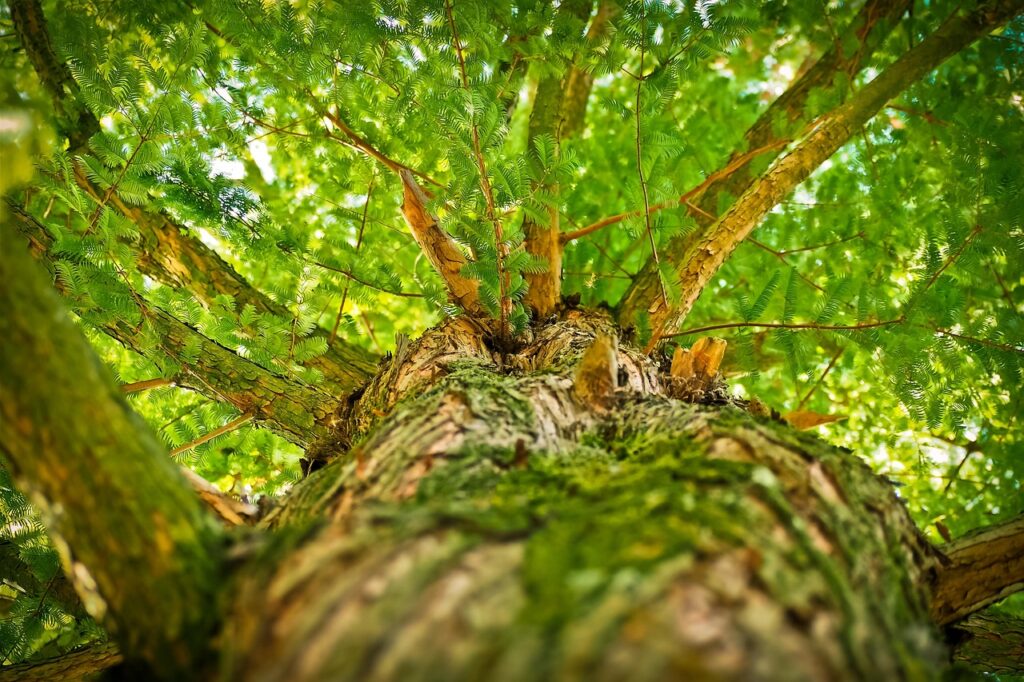Mature trees add beauty, shade, and character to a property, but when they become old or unhealthy, they can pose serious risks. If left unchecked, aging trees can collapse, causing damage to homes, vehicles, power lines, or even people. Being proactive about tree removal can prevent costly repairs and dangerous situations. Here’s why it’s a good idea to have old trees removed before they become a hazard.
- Prevent Property Damage
As trees age, they become more susceptible to disease, rot, and structural weakness. A strong storm, high winds, or heavy snowfall can easily bring down weak branches or even topple an entire tree. If a tree falls onto your house, garage, or car, the cost of repairs can be significant. Removing a risky tree before disaster strikes is a smart way to protect your property.
- Reduce the Risk to People and Pets
A falling tree or large limb can be life-threatening. If you have children or pets who play in the yard, an unstable tree poses a serious safety concern. Even if no one is outside at the time of a collapse, a falling tree can still damage neighboring properties or vehicles parked nearby.
- Avoid Legal and Liability Issues
If a tree on your property falls and damages a neighbor’s home or injures someone, you could be held financially responsible. Many homeowners’ insurance policies cover tree-related damages, but only if the tree was well-maintained and its removal wasn’t previously recommended. If you knowingly leave a hazardous tree standing, you could face legal and insurance complications if it falls.
- Prevent Pest Infestations
Dying trees often attract pests such as termites, carpenter ants, and rodents, which can then spread to your home. Dead or decaying wood is an inviting habitat for these pests, making your property more vulnerable to infestations. Removing old trees reduces the chances of these unwanted visitors making their way into your house.
- Protect Other Trees and Landscaping
Diseased trees can spread infections to other healthy trees in your yard, weakening your overall landscape. Fungal infections, root rot, or invasive insects can quickly move from one tree to another, leading to widespread tree loss. Removing an old or diseased tree can help preserve the health of the remaining trees and plants on your property.
- Improve Curb Appeal and Property Value
An old, decaying tree can make your property look neglected. Removing hazardous trees and replacing them with healthier landscaping options can enhance curb appeal and even increase property value. A well-maintained yard with thriving trees is far more attractive than one with dying or fallen trees.
- Ensure Utility Safety
Trees growing too close to power lines can cause electrical hazards, leading to power outages or even fires. Old trees with weak limbs are especially dangerous in this regard. Utility companies often trim branches near power lines, but if an entire tree poses a risk, it’s best to remove it before it causes major disruptions.
- Prepare for Severe Weather
Storms, hurricanes, and heavy snow can put significant strain on trees, especially if they are already weakened by age or disease. Homeowners in areas prone to severe weather should take proactive steps to remove unstable trees before they become a liability during extreme conditions.
When to Consider Tree Removal
It’s not always easy to tell when a tree is at risk of falling, but some warning signs include:
Large dead branches or cracked limbs
Significant leaning or shifting in the trunk
Hollow or decaying sections in the trunk or base
Fungus growth at the base of the tree
Exposed or weakened root systems
Noticeable insect infestations
Final Thoughts
While it may be difficult to part with an old tree, the risks of leaving a weak or diseased tree standing far outweigh the benefits. Removing hazardous trees before they fall can protect your home, prevent injuries, and maintain the beauty and safety of your property. If you’re unsure about the condition of a tree, consult with a professional arborist who can assess whether it needs to be removed. Taking action now can save you from potential disasters in the future.

